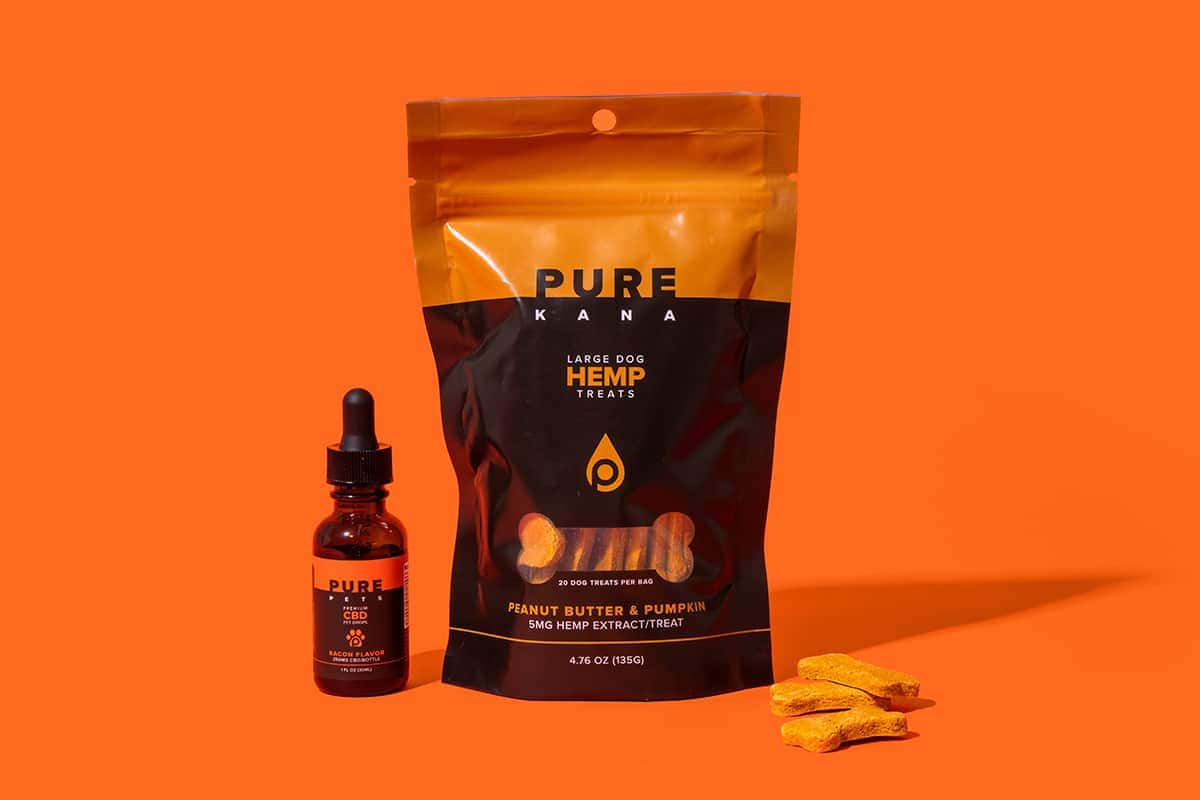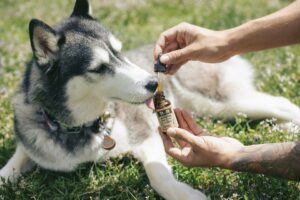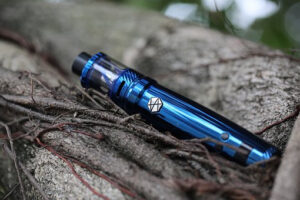The CBD for pets market is perhaps one of the surprise winners of the industry’s boom. According to data by Grand View Research, the CBD pet market could be worth over $1.7 billion by 2030. Key factors driving this growth include pet humanization, growing pet expenditure, and increased awareness of products such as CBD for dogs and cats.
Table of Contents
However, the same concerns exist over CBD pet products as they do for items sold for human consumption. The CBD for pets industry is no better regulated than the standard market. Consequently, a variety of low-grade products have flooded the marketplace.
As a result, pet owners are quite reasonably asking the following question: “Are CBD products for animals safe?” This article aims to provide an answer.
Why Do People Buy CBD for Pets?
Before we proceed, let’s examine why pet owners feel compelled to give cannabidiol to their dogs and cats.
According to different surveys of American and Canadian pet owners, the top three reasons for investing in CBD are:
- Providing pain relief
- Reducing inflammation
- Decreasing anxiety
There are a huge number of anecdotal reports from delighted pet owners who claim that CBD worked wonders for their dog or cat. However, published studies into the benefits of CBD for pets are extremely scarce.
Indeed, almost every relevant study to date has involved the effects of cannabidiol on dogs with osteoarthritis. This is a common condition amongst older and overweight canines. In almost every case, the researchers found that dogs who consumed CBD showed improved mobility and decreased pain.
The consistency of the results is particularly impressive since the studies varied in terms of consumption method, dosage, dosing regimen, and treatment length. There were a few adverse effects, including increased serum alkaline phosphatase, which is linked with possible liver damage.
Meanwhile, there is little or no data on CBD for inflammation in dogs and cats. However, research was conducted into the impact of cannabidiol on inflammation in thoroughbred horses. Researchers noted changes in the horses’ inflammatory signaling pathways and suggested further research.
Is CBD Safe for My Pet?

Now we move onto the burning issue; whether CBD for pets is safe. The biggest problem uncovered in research to date surrounds the issue of potential liver damage.
One study found that when mice consumed large amounts of CBD, they showed liver damage within 24 hours. Yet this study involved using the FDA-approved drug, Epidiolex, which contains CBD. Furthermore, it was an extremely high dosage of up to 2,460mg of CBD per kilogram of body weight.
Let’s assume the level of liver toxicity suffered by the mice applied to canines. This means a 22-pound (10-kilogram) dog would need to consume 24,600mg of CBD to suffer the rate of liver damage outlined in the study on mice. Since most CBD pet products contain 500mg or less, it would be some feat for a dog to consume 50 times this amount in a single dose!
A growing number of veterinarians are calling for greater research into CBD for pets as they believe it is a viable alternative to pharmaceutical drugs. Indeed, many animal experts acknowledge that life-threatening risks to dogs and cats from medical cannabis are rare. In general, toxicity occurs when a pet eats something containing raisins, coffee, or chocolate.
In truth, pets should not consume THC as it is an intoxicating cannabinoid and could cause numerous side effects. In contrast, CBD is non-intoxicating and is well tolerated by pets when consumed in reasonable quantities. Besides possible liver damage from incredibly high doses, adverse effects are mild and may include sleepiness.
Final Thoughts on Whether CBD for Pets is Safe
We need to see additional research into CBD for dogs, cats, and other pets to know its full benefits and effects. Some studies have found evidence of potential liver toxicity in animals, but only when they consume a dose far beyond the average. Otherwise, the available data shows that adverse effects are rare and usually mild.
That said, it is essential to only buy CBD for pets from reputable sellers. Don’t place your order unless the brand offers updated third-party lab reports with each batch. The industry remains poorly regulated, so it is best to stick with a handful of tried and trusted brands.
Also Read:






